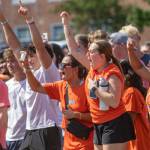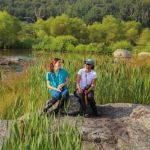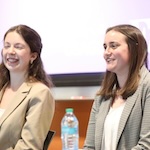
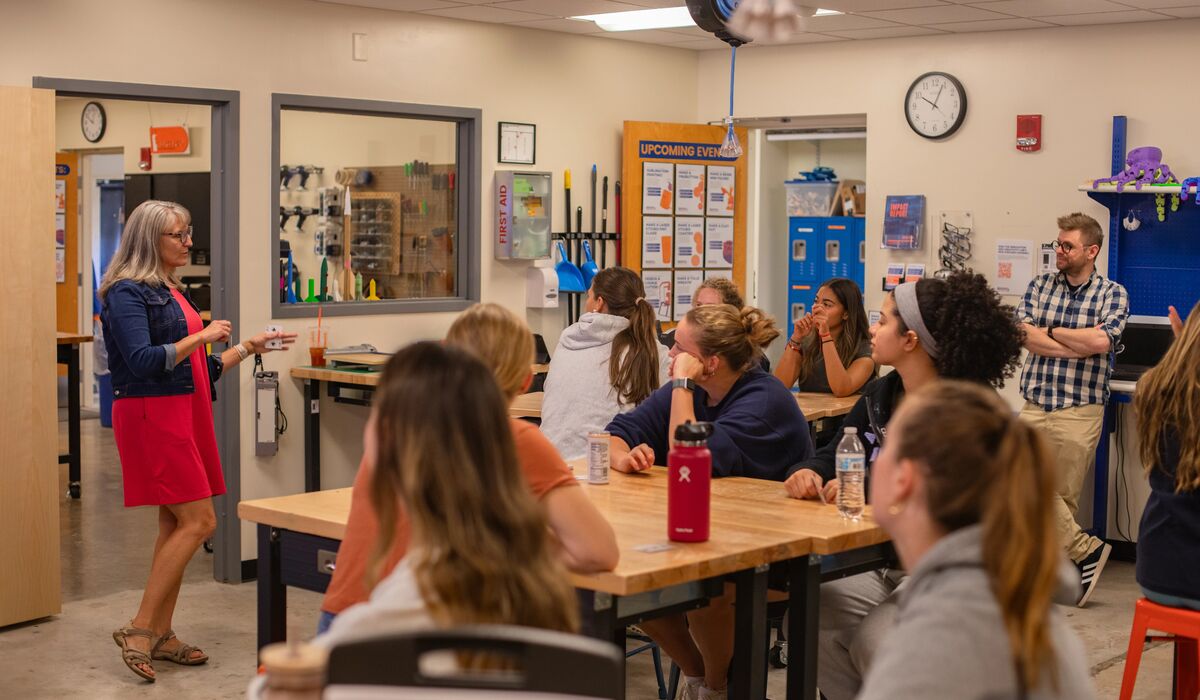
Gettysburg faculty and staff continually explore innovation and collaboration across the curriculum. Cross-curricular experiential learning gives students a tangible way to acquire knowledge and build enduring skills through the Gettysburg Approach.
In September, Innovation & Creativity Lab Manager Josh Wagner and Sociology Prof. Divonna Stebick demonstrated how a collaboration using the College’s makerspace fosters engaged, collaborative experiential learning among students.
Wagner and Stebick, who is also the director of the Office of Teacher Education and Certification, showcased how their work through the Innovation & Creativity Lab (ICL) allows students to create, reflect, and evolve themselves and their abilities. They presented their research on student learning outcomes supported by the ICL at the 2024 International Symposium on Academic Makerspaces (ISAM) in Sheffield, United Kingdom. Through their presentation, the pair explored how they’ve developed pedagogical best practices that support experiential learning using the ICL’s resources.
Since January 2020, Wagner has partnered with Stebick to teach EDUC 225 Creativity: Teaching and Learning Cross-Disciplinary Applications. The two intentionally built the elective course around activities using the ICL’s array of sewing machines, laser cutters, 3D printers, and more.
Design thinking develops enduring skills
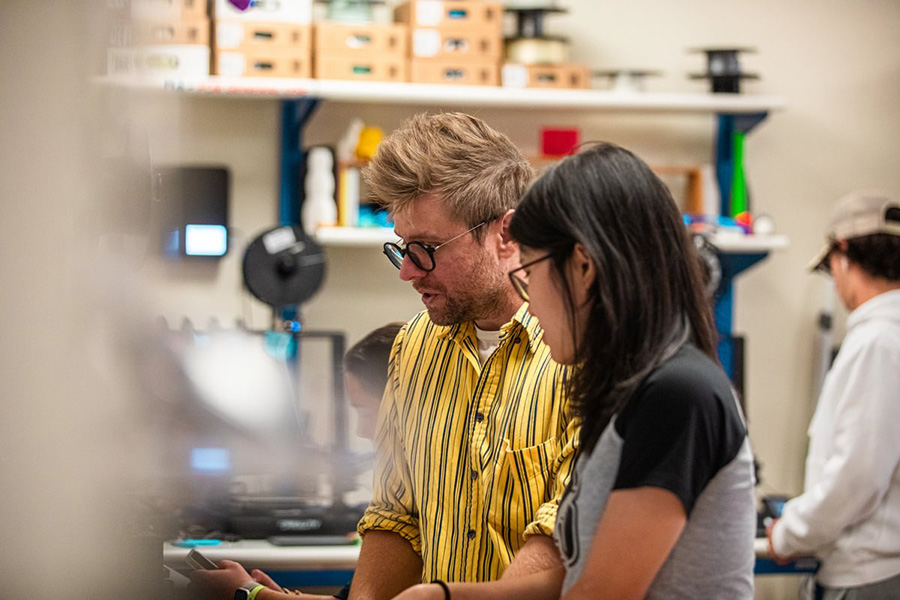
Paralleling the design thinking foundation of Wagner’s popular First-Year Seminar, Fail This Course: Creativity, Making, and Failure, Stebick wanted to provide students a creative, constructive experience to help them learn about themselves and their abilities.
“It’s an environment where students challenge one another and respect one another,” she said. “This course attracts students from any major, not just those studying education.”
The project-based nature of the course gives students opportunities to continually reflect on idea generation, hands-on experimentation, and processing failure as they conceive, design, and create items ranging from stained glass to wood carvings. Through their projects, students cultivate adaptability and teamwork skills through the creative process.
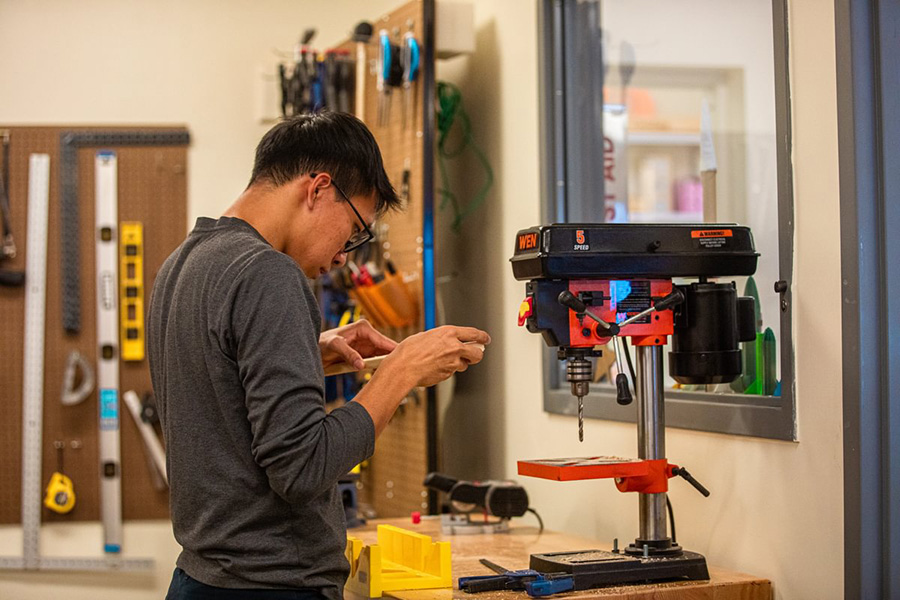
“Students are really interested in this type of learning. The lab sets Gettysburg College apart from other colleges,” Wagner said.
Stebick and Wagner were curious about how their approach to experiential learning would resonate with students. Each time they co-taught EDUC 225, they gathered student feedback, combining it with data and observations about learning outcomes to improve course content and conduct firsthand research on the value of academic makerspaces.
“The work in these classes taught me the importance of creativity and exploring the creative mind.”
– Gracie Spataro ’26
Creativity unleashed through collaboration
Gracie Spataro ’26 and Emma Hladik ’24 participated in EDUC 225 during the Spring 2024 semester. The course’s hands-on approach developed their resiliency and challenged them to grow their self-confidence—skills they’ve honed since completing Wagner’s First-Year Seminar.
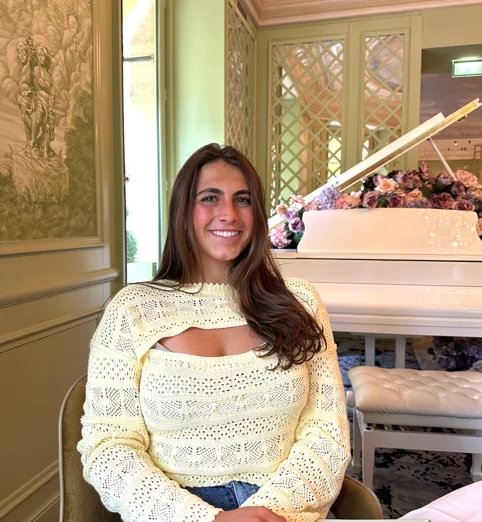
Spataro, a history major and educational studies minor, said the hands-on approach taught her to become more competent in conceiving and executing ideas, like the projects she created using sublimation printing and laser etchings. These qualities are ones she’ll rely on as she pursues a career as a high school history teacher, she said.
“The work in these classes taught me the importance of creativity and exploring the creative mind,” she said. “It helped me think about how to incorporate more creative aspects into projects for my students and to do something like what the ICL did for me.”
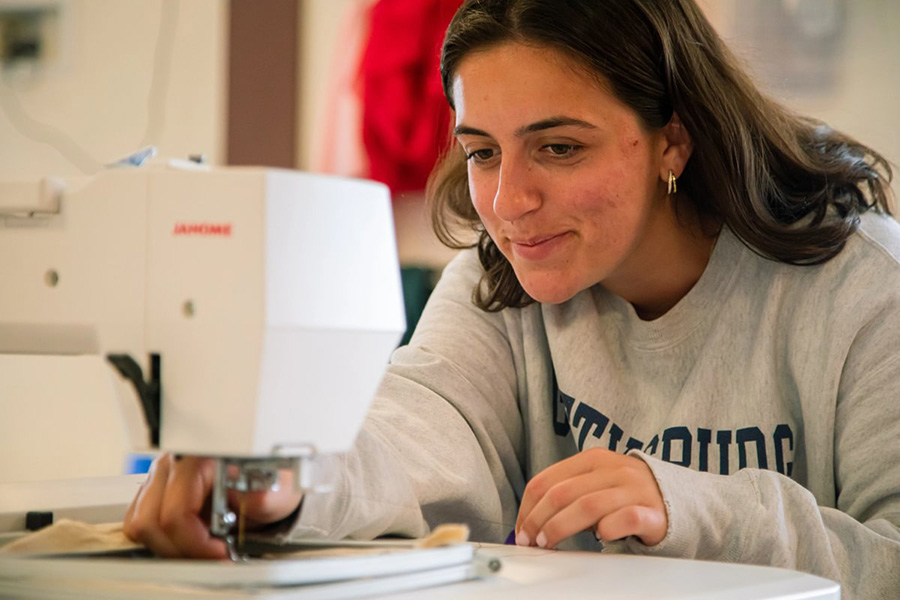
Hladik—an interdisciplinary studies major focusing on business, communication, and media— learned how to identify multiple ways to approach problems through design thinking while reflecting on setbacks and successes.
“I’m able to now look at a problem and be OK with not knowing the answer right away. I’ve learned a lot through being in group settings and hearing from others’ experiences,” she said. “Everyone has a background; everyone has a story. You learn and grow so much once you start talking with other people.”
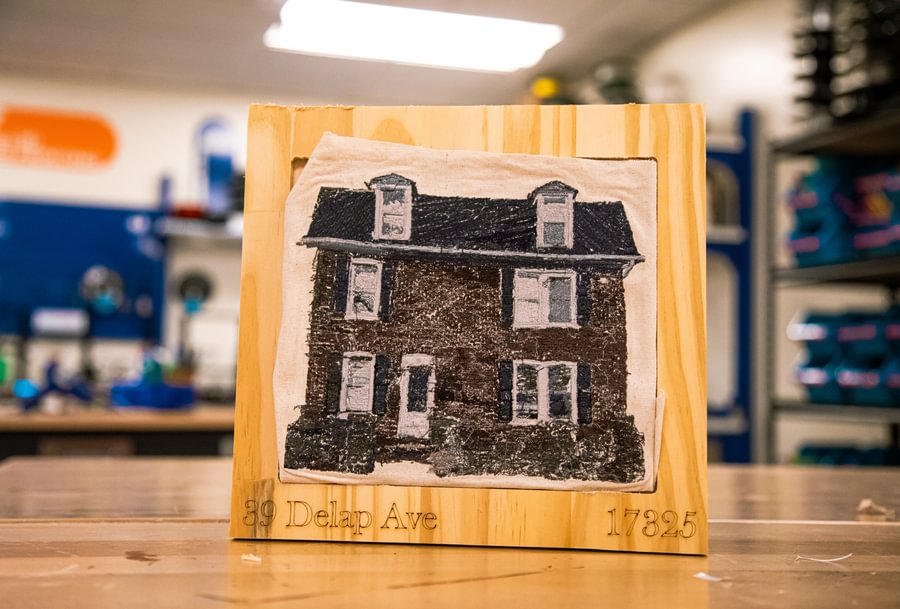
Hladik, an assistant account executive for a New Jersey insurance agency, wants to go abroad and teach in Spain. She feels the adaptability and problem-solving skills honed through the hands-on learning opportunities with the ICL will position her well for her future.
Wagner and Stebick agree that cross-curricular collaboration supports students in their learning and benefits faculty and staff by allowing them to learn from each other.
“Josh and I are practicing what we’re teaching through collaborating with one another,” Stebick said, “and we’re constantly learning and refining.”
“Because we’re modeling that behavior, it gets students interested and excited in collaboration,” Wagner said. “This can have a meaningful impact on instruction, and that’s something we do really, really well here at Gettysburg.”
Visit Gettysburg College and meet the faculty who empower our students’ consequential education.
Related Links:
External Links:
By Michael Vyskocil
Photos by Diptiman Das ’27 and Abbey Frisco
Posted: 11/15/24

